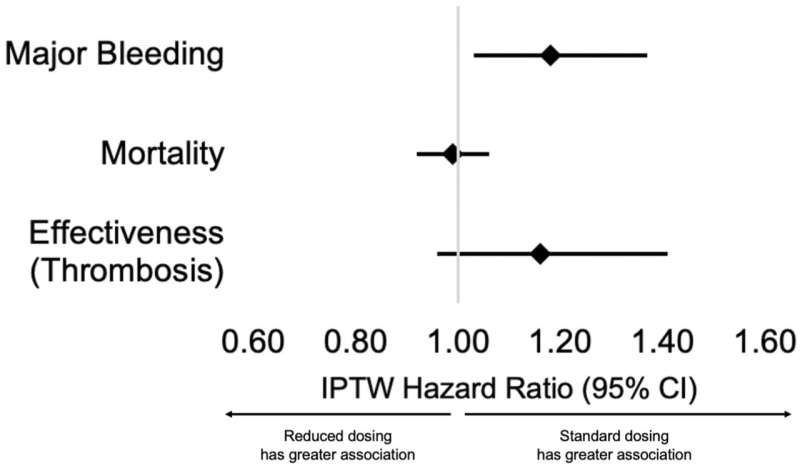This article has been reviewed according to Science X's editorial process and policies. Editors have highlighted the following attributes while ensuring the content's credibility:
fact-checked
peer-reviewed publication
proofread
Study supports use of reduced-dose of direct oral anticoagulants for many older adults with two or more conditions

A nationwide study of 21,878 older nursing home residents with nonvalvular atrial fibrillation (NVAF) found a higher rate of bleeding and little difference in the effectiveness of standard versus reduced-dose treatment using direct oral anticoagulants (DOAC).
"Given the potential harms and unclear benefits of standard DOAC dosing, our results support the use of reduced-dose DOACs for many older adults with multiple chronic medical conditions," said Dr. Sarah Berry, MD, MPH, of Hebrew SeniorLife's Hinda and Arthur Marcus Institute for Aging Research.
DOACs can prevent serious thrombotic events like stroke in residents with nonvalvular atrial fibrillation (NVAF) and have a lower risk of major bleeding events than warfarin.
Persons receiving standard-dosing of DOACs experienced 1.4 more major bleeds per 100 person-years than those on reduce-dosing, with highest relative bleeding rates among those aged ≥80 years or who were not obese.
Over the 1-year follow-up period, the overall rate of major bleeds in this population was 8.6 per 100 person-years (PY) and 5.7 per 100 PY for thrombotic events.
The findings were reported in the article, Benefits and Harms of Standard versus Reduced-Dose Direct Oral Anticoagulant Therapy for Multimorbid Older Adults with Atrial Fibrillation, published in the Journal of the American Heart Association.
More information: Kaleen N. Hayes et al, Benefits and Harms of Standard Versus Reduced‐Dose Direct Oral Anticoagulant Therapy for Older Adults With Multiple Morbidities and Atrial Fibrillation, Journal of the American Heart Association (2023). DOI: 10.1161/JAHA.122.029865




















